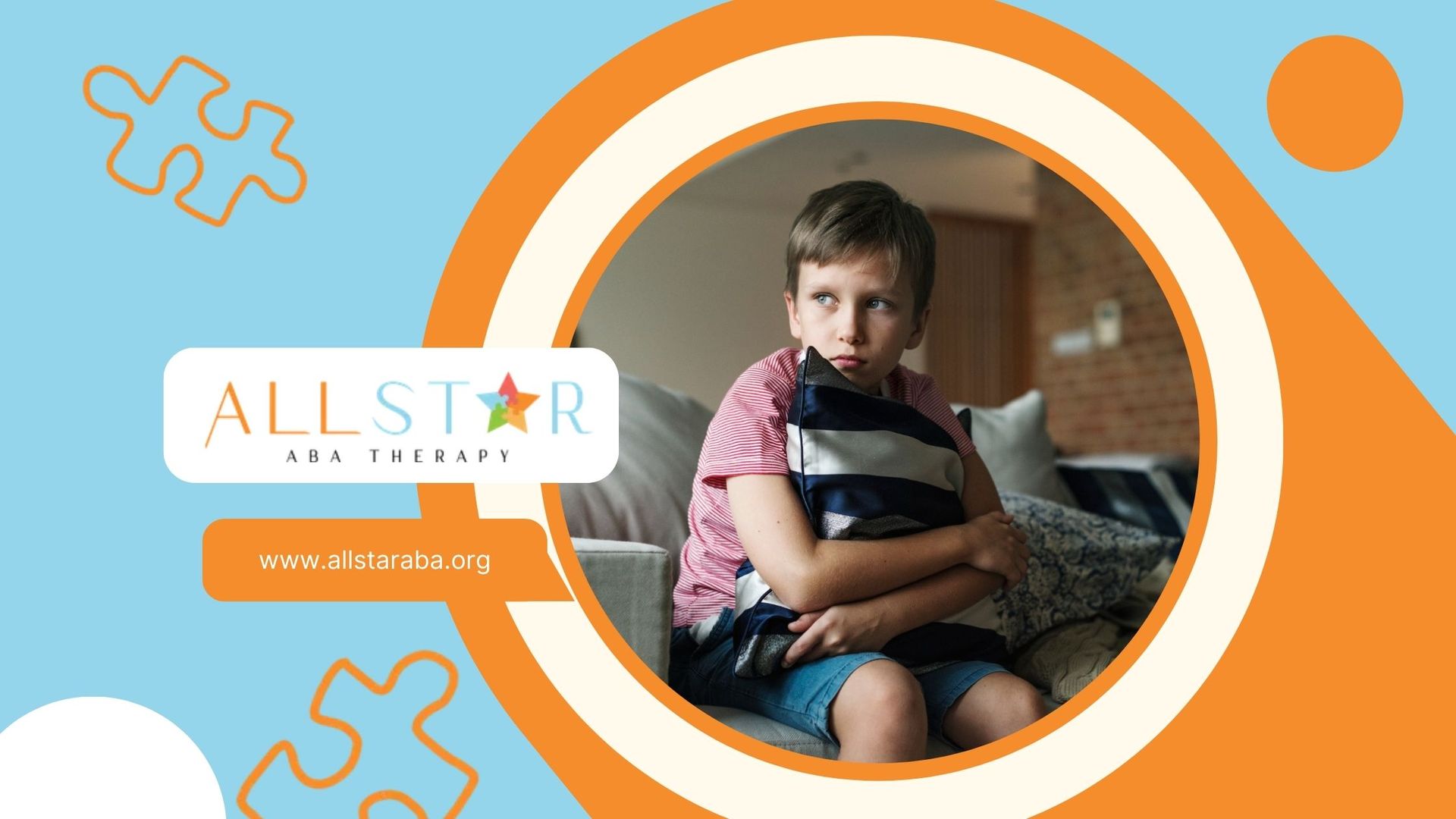New Paragraph
Connect with Local Autism Support Groups
Key Highlights
- Connecting with local autism support groups can provide a sense of community and support for individuals with autism and their families.
- Support groups offer a variety of benefits, including social skills development, peer support, and the opportunity to learn new skills.
- There are different types of support groups available, including local in-person groups and virtual online groups.
- Maryland has a range of resources and community centers where individuals and families can find autism support groups.
- Support groups cater to diverse needs within the autism community, including parents and family members, individuals with ASD, and ABA therapists, professionals, and educators.
Introduction
In a world where connection and support are essential, finding a community that understands and supports your unique journey can make all the difference. For individuals with autism spectrum disorder (ASD) and their families, connecting with local autism support groups can provide a sense of belonging and much-needed support. These groups offer a network of understanding individuals who share similar experiences and challenges and can provide a safe space to learn, grow, and connect.
Autism Spectrum Disorder (ASD) is a developmental disability that affects communication, social interaction, and behavior. It is a complex disorder that affects individuals differently, resulting in a wide range of symptoms and challenges. Understanding ASD and its impact on individuals and families is crucial in creating a supportive environment.
In this blog, we will explore the importance of support groups for the autism community, the benefits of joining a support group, the different types of support groups available, and how to find autism support groups in Maryland. We will also discuss tailored support for diverse needs within the autism community and provide tips for preparing to join a support group. Let's dive in and discover the power of connecting with local autism support groups.
Understanding Autism Spectrum Disorder (ASD)
Autism Spectrum Disorder (ASD) is a developmental disorder characterized by challenges in social interaction, communication, and behavior. It is a spectrum disorder, meaning the symptoms and severity can vary from person to person. Some individuals with ASD may have difficulty with social cues, maintaining eye contact, and understanding nonverbal communication. Others may have repetitive behaviors or intense interests in specific topics. ASD is considered a developmental disability because it typically appears in early childhood and affects how a person develops and learns.
The Basics of ASD
Autism Spectrum Disorder (ASD) is a neurodevelopmental disorder that affects how individuals communicate, interact with others, and perceive the world around them. It is characterized by a range of symptoms, including difficulties with social interaction, repetitive behaviors, and restricted interests. ASD is a spectrum disorder, which means that individuals can experience a wide range of symptoms and varying levels of severity.
ASD is typically diagnosed in early childhood, although some individuals may not receive a diagnosis until later in life. The exact cause of ASD is unknown, but it is believed to involve a combination of genetic and environmental factors. Early intervention, therapy, and support can greatly improve the quality of life for individuals with ASD and their families.
How Autism Affects Families
Autism can have a significant impact on families. Family members of individuals with autism often face unique challenges and responsibilities. Caring for a loved one with autism can be emotionally and physically demanding, as well as financially challenging. It is common for family members to experience increased levels of stress, anxiety, and depression.
Families may also face difficulties in finding appropriate services, managing behavioral challenges, and navigating the education system. The impact of autism on siblings can also be significant, as they may experience feelings of resentment, confusion, or a sense of responsibility for their autistic sibling.
However, it is important to note that autism also brings many joys and rewards to families. With the right support and resources, families can develop strategies to address challenges, foster understanding, and create a loving and inclusive environment for all family members.
The Importance of Support Groups for the Autism Community
Support groups play a crucial role in providing a support network for individuals with autism and their families. They offer a safe and understanding space where individuals can share experiences, seek advice, and connect with others who understand their unique challenges. Support groups provide a sense of belonging and community, helping to combat feelings of isolation and promote overall well-being.
For families, support groups can offer valuable peer support and access to resources and information. They provide an opportunity to learn from others' experiences, gain insights into different strategies and interventions, and build strong connections with individuals who share similar journeys. Support groups also play a vital role in advocating for the rights and inclusion of individuals with autism.
Benefits of Joining a Support Group
Joining a support group can bring numerous benefits to individuals with autism and their families. Some key benefits include:
- Social Skills Development:
Support groups provide a platform for practicing and improving social skills in a safe and understanding environment.
- Learning New Skills:
Support groups often offer workshops, webinars, and educational resources that can help individuals and families develop new skills and strategies for managing autism-related challenges.
- Peer Support: Connecting with others who share similar experiences can provide a sense of validation, understanding, and emotional support.
- Building Healthy Relationships: Support groups facilitate the formation of meaningful connections and friendships, fostering a sense of belonging and reducing feelings of isolation.
- Access to Resources and Information: Support groups can provide valuable information, resources, and referrals to help individuals and families navigate the challenges associated with autism.
Types of Support Groups Available
There are different types of support groups available for individuals with autism and their families. These include:
- Local Support Groups: These groups meet in person and are usually organized by community centers, autism societies, or local organizations. They provide an opportunity for face-to-face interaction and connection with others in the local community.
- Virtual Support Groups: Virtual support groups have gained popularity, especially in recent times, as they allow individuals to connect online regardless of their geographical location. These groups use video conferencing platforms or online forums to facilitate discussions and support.
- Autism Support Groups: These support groups specifically focus on autism-related topics and challenges. They provide a safe space for individuals and families to share their experiences, seek advice, and learn from others in similar situations.
Finding Autism Support Groups in Maryland
In Maryland, there are several resources available for finding autism support groups. Whether you are looking for local in-person groups or virtual support options, the following resources can help you connect with the autism community:
- Local Community Centers and Resources: Many community centers and organizations in Maryland offer support groups and resources for individuals with autism and their families. These centers often have directories or online listings of support groups available in their area.
- Autism Society:
The
Autism Society of Maryland is a valuable resource for finding autism support groups. They provide a directory of local support groups, workshops, and events tailored to the needs of the autism community.
- Autism Connect: Autism Connect is an online platform that connects individuals and families with autism support groups, services, and resources in Maryland. It offers a comprehensive directory and search functionality to help you find the right support group for your needs.
Tailored Support for Diverse Needs within the Autism Community
Autism support groups recognize that the autism community is diverse, and different individuals and families have unique needs. As a result, there are support groups tailored to specific populations within the autism community. These tailored support groups include:
- Support Groups for Parents and Family Members: These groups provide a space for parents and family members to connect, share experiences, and seek support from others who understand the challenges of raising a child with autism.
- Support Groups for Individuals with ASD:
These groups focus on providing support, resources, and social opportunities for autistic individuals. They help individuals build self-advocacy skills, develop social connections, and learn strategies for navigating daily life.
- Support Groups for ABA Therapists, Professionals, and Educators: These groups offer a platform for ABA therapists, professionals, and educators to share knowledge, discuss best practices, and stay updated on the latest research and advancements in the field.
For Parents and Family Members
Support groups for parents and family members provide a valuable space for sharing experiences, seeking advice, and finding support from others who understand the challenges of raising a child with autism. These support groups offer a range of resources and opportunities for connection. Some key support groups for parents and family members include:
- Caregivers Support Group:
This support group focuses on providing emotional support and resources for caregivers of individuals with autism. It offers a safe space to share experiences, seek, and connect with others facing similar challenges.
- Sibling Support Project:
Sibling support groups provide a space for the brothers and sisters of autistic individuals to connect, share their experiences, receive support. These support groups can help siblings better understand autism and develop coping strategies.
- Autism Society Support Groups: The Autism Society offers support groups for parents and family members of individuals with autism. These groups provide a platform for sharing experiences, accessing resources, and building a network of support.
For Individuals with ASD
Support groups for individuals with ASD are designed to provide a supportive and inclusive space for autistic individuals to connect, share experiences, and learn from one another. These support groups offer a range of benefits, including:
- Building Self-Advocacy Skills: Support groups for individuals with ASD provide a platform for developing self-advocacy skills and empowering individuals to express their needs, preferences, and concerns.
- Social Connections:
Support groups offer opportunities for individuals with ASD to build social connections, make friends, and develop meaningful relationships with others who understand their experiences.
- Learning from Similar Experiences: Connecting with other autistic individuals in a support group setting allows individuals to learn from others' experiences, gain insights into strategies that work, and develop a sense of belonging within the autism community.
For ABA Therapists, Professionals, and Educators
Support groups for ABA therapists, professionals, and educators play a crucial role in fostering collaboration, sharing best practices, and staying updated on the latest research and advancements in the field of autism intervention. These support groups provide opportunities for:
- Professional Development:
Support groups offer a platform for ABA therapists, professionals, and educators to enhance their skills, share knowledge, and stay informed about evidence-based practices.
- Networking and Collaboration:
Connecting with peers in the field allows professionals to network, collaborate on research or projects, and learn from one another's experiences.
- Access to Resources: Support groups often provide access to resources, training materials, and webinars that can further support professional development and enhance the quality of care provided.
Preparing to Join an Autism Support Group
Preparing to join an autism support group can help individuals and families make the most out of their experience. Here are a few things to consider when preparing to join a support group:
- Research Different Support Groups: Take the time to research and find the support group that aligns with your needs and preferences.
- Understand the Group's Focus: Different support groups may have different focuses, such as parenting strategies, self-advocacy, or specific age groups. Understand the focus of the group you are interested in joining to ensure it meets your needs.
- Prepare Questions or Topics: Come prepared with questions or topics you would like to discuss during the support group meeting.
- Be Open-Minded and Respectful: Support groups are diverse, and everyone's journey is unique. Approach the group with an open mind, and be respectful of others' experiences and perspectives.
What to Expect
When joining an autism support group, it's important to have realistic expectations. Here's what you can expect from support group meetings:
- Sharing Experiences: Support group meetings provide an opportunity to share your experiences, challenges, and successes with individuals who understand your journey.
- Active Listening: Support group meetings involve active listening and respectful communication. Everyone has the opportunity to share and contribute to the conversation.
- Emotional Support:
Support group meetings offer emotional support and a safe space for expressing your feelings and concerns.
- Access to Resources: Support groups often provide resources, referrals, and information about services and programs that can support individuals and families living with autism.
- Autism Society Support: The Autism Society is a valuable resource for finding support groups and accessing information and resources related to autism.
Making the Most Out of Support Groups
To make the most out of your participation in support groups, consider the following tips:
- Share Your Experiences:
Don't be afraid to share your experiences, challenges, and successes. Your unique insights can benefit others and foster a sense of community.
- Prioritize Self-Care and Wellness: Taking care of yourself is essential. Prioritize self-care activities and strategies that promote your well-being.
- Take Advantage of Peer Support: Engage with other group members and build connections. Peer support can provide valuable insights, advice, and a sense of belonging.
- Be Open to Learning: Support groups offer opportunities to learn from others' experiences and gain new perspectives. Be open to learning and embracing new strategies or approaches.
Conclusion
In conclusion, connecting with local autism support groups can provide invaluable support, resources, and understanding for individuals and families impacted by autism spectrum disorder. These groups offer a sense of community, opportunities to share experiences, and access to vital information and assistance. By joining these groups, individuals can enhance social skills, build healthy relationships, and foster mental health well-being. Embracing the support of a network dedicated to autism awareness and advocacy can significantly improve the quality of life for those in need within the autism community.
Frequently Asked Questions
How to Choose the Right Support Group?
Choosing the right support group is essential for finding the support and resources that align with your needs. Consider the following when choosing a support group:
- Evaluate your needs and goals
- Look for groups that align with your specific circumstances
- Utilize directories or reach out to local organizations for recommendations
Need Support?
We're Here to Help!
Our experienced team is ready to assist you. Reach out today to discuss how we can support your child's development and well-being.
Get started with expert ABA therapy today.
Related posts

All Star ABA delivers the gold standard of care, Applied Behavioral Analysis (ABA) therapy, for individuals diagnosed with ASD, from infancy to age 21.
Quick Links
All Rights Reserved | All Star ABA







